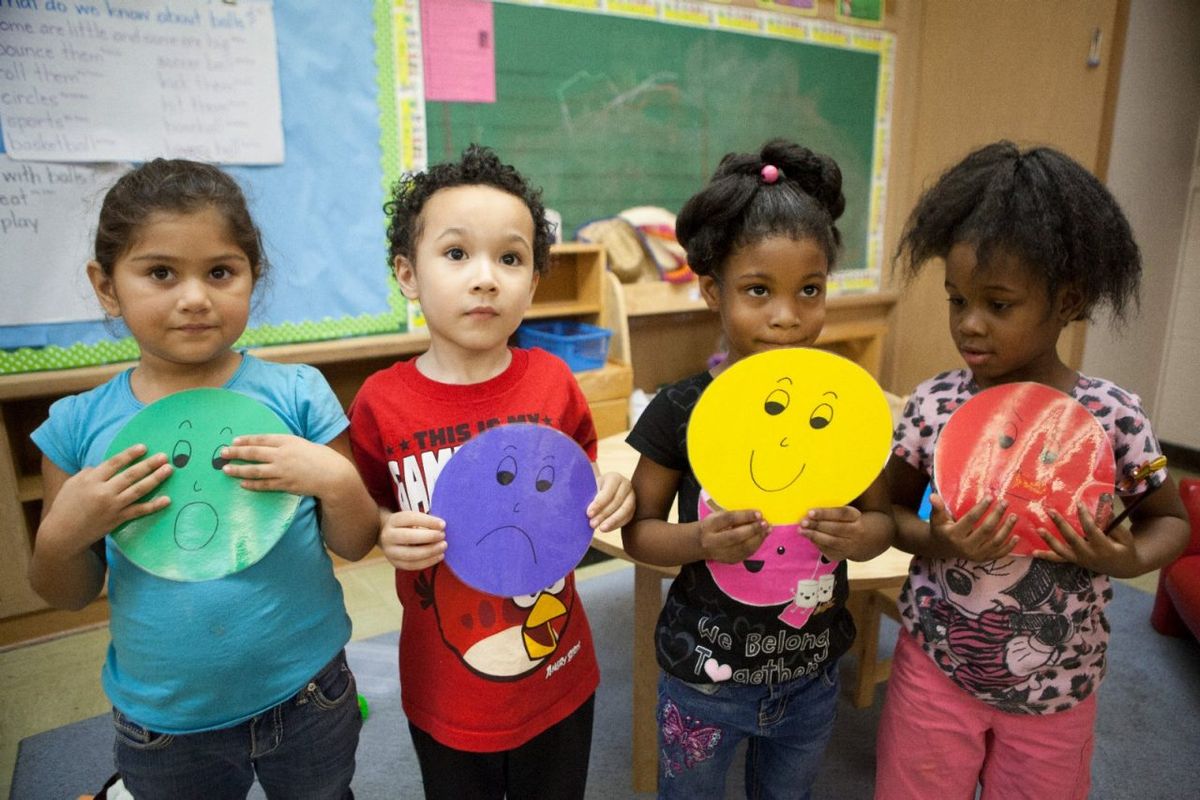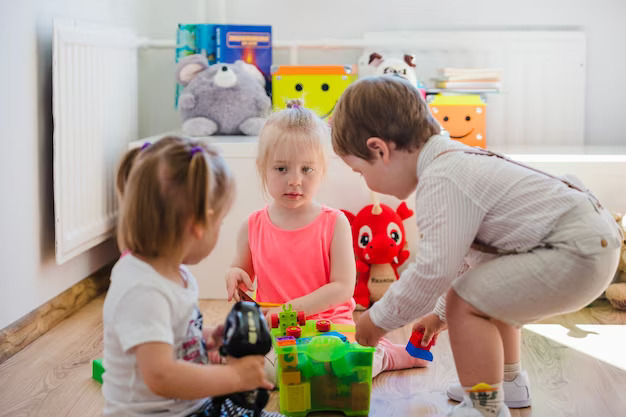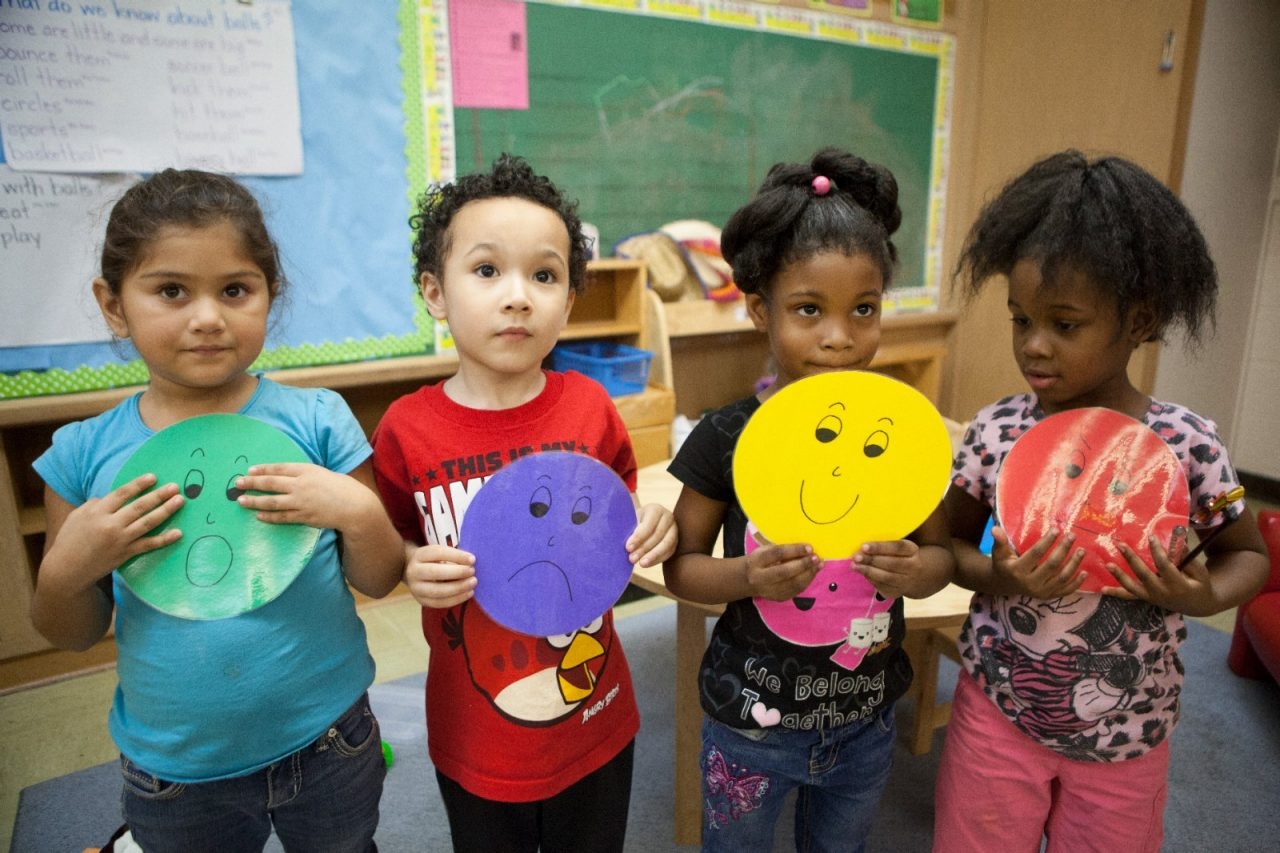
Preschool is a crucial time in a child's development, laying the groundwork for various skills that will serve them throughout life. Emotional intelligence, the ability to understand and manage one's emotions and navigate social interactions effectively, is a key aspect of this early learning. Here are some practical approaches that educators and parents can employ to nurture emotional intelligence in preschoolers.
1. Labeling Emotions:
Start by helping preschoolers identify and label their emotions. Use simple language to express feelings, such as happy, sad, or angry. Books, pictures, and stories can be powerful tools to illustrate different emotions and help children recognize them in themselves and others.
2. Emotion Charades:
Engage preschoolers in a fun game of emotion charades. Encourage them to act out different emotions, and ask their peers to guess how they are feeling. This interactive activity not only makes learning about emotions enjoyable but also enhances their ability to recognize and understand different feelings.
3. Storytelling with Emotions:
Incorporate emotion-rich stories into preschool curriculum. Choose books that highlight characters experiencing a range of emotions and discuss these feelings with the children. This approach not only promotes language development but also helps preschoolers empathize with others' emotions.
4. Emotion Faces and Art:
Encourage creativity by incorporating art into emotional intelligence development. Provide materials for preschoolers to draw or craft emotion faces. This hands-on activity allows them to visually express different emotions and provides an opportunity for discussions around why certain feelings might arise.
5. Calm Down Corners:
Create designated "calm down" corners within the preschool environment. These spaces should be equipped with soft cushions, sensory items like stress balls, and perhaps a few calming books. When preschoolers feel overwhelmed, having a designated space to retreat and self-regulate can teach them valuable emotional management skills.
6. Teach Problem-Solving:
Help preschoolers understand that conflicts are a natural part of social interactions. Teach them problem-solving skills by encouraging them to express their feelings when conflicts arise and guiding them to find solutions collaboratively. This approach empowers children to manage their emotions constructively.
7. Model Emotional Expression:
Children learn by observing, so it's essential for educators and parents to model healthy emotional expression. Share your feelings with preschoolers and express how you navigate various emotions. This not only normalizes the range of emotions but also demonstrates constructive ways to handle them.
8. Emotion-themed Play:
Integrate emotion-themed play into the daily routine. Provide dolls, puppets, or action figures with various facial expressions, allowing preschoolers to engage in imaginative play scenarios. This hands-on approach helps them explore and understand emotions in a playful context.
9. Social-Emotional Learning Programs:
Explore the use of age-appropriate social-emotional learning (SEL) programs designed for preschoolers. These programs often incorporate interactive activities, games, and stories to explicitly teach emotional intelligence skills, fostering a positive emotional climate within the preschool setting.
10. Encourage Empathy:
Foster empathy by emphasizing the importance of understanding and sharing others' feelings. Engage preschoolers in activities that require them to consider the emotions of their peers, such as cooperative games or collaborative projects. Reinforce the idea that everyone's feelings matter.

11. Positive Reinforcement:
Celebrate and reinforce positive emotional expression. When preschoolers communicate their feelings effectively or demonstrate empathy, acknowledge and praise their efforts. Positive reinforcement helps build their confidence in expressing and managing emotions.
Related : How Do You Encourage Peer Interaction In Preschool?
Choosing the Right Preschool for Emotional Development:
Selecting the right preschool is vital for a child's emotional development. The early years play a fundamental role in shaping a child's social and emotional intelligence. In the right preschool environment, children have opportunities to explore and understand their emotions, learn effective communication, and develop empathy through interactions with peers. A preschool that prioritizes emotional development provides a supportive space where educators are attuned to each child's unique emotional needs. This early exposure to positive social experiences lays the foundation for healthy emotional regulation, fostering resilience and well-being in the child's formative years and beyond.
Montessori Shir-Hashirim Los Angeles
- 6047 Carlton Way, Los Angeles, CA 90028
- Highly rated for focused curriculum, excellent staff, and diverse extracurriculars
- Half day: $27,000 yearly, $9,000 quarterly
- Full day: $28,500 yearly, $9,500 quarterly
Shir-Hasirim Montessori school has two different locations. The main location is on Carlton Way in Los Angeles. This school teaches children between the ages of 2 and 6 and prepares them for some of the top Montessori elementary schools in the city. Specifically, they offer a primary program and a summer program for preschool children.
At Shir-Hashirim, they allow their students to grow and learn both individually and within the community of the school. Students are able to learn at their own pace when it comes to both practical life skills and subjects such as maths and language. Shir-Hashirim Montessori has a parent-and-me program that is best for families who may enrol their child in the Montessori program.
With a dedicated focus on emotional intelligence, their curriculum is designed to nurture each child's unique emotional needs. The experienced and caring staff at Shir Hashirim ensures a supportive environment where emotional intelligence is prioritized, laying the foundation for lifelong emotional well-being.
Conclusion
Cultivating emotional intelligence in preschoolers involves intentional and consistent efforts from both educators and parents. These practical approaches not only contribute to a child's emotional development but also create a positive and supportive learning environment. By incorporating these strategies into daily routines, we empower preschoolers with the essential skills they need to navigate the complex world of emotions and build a strong foundation for future social interactions.


